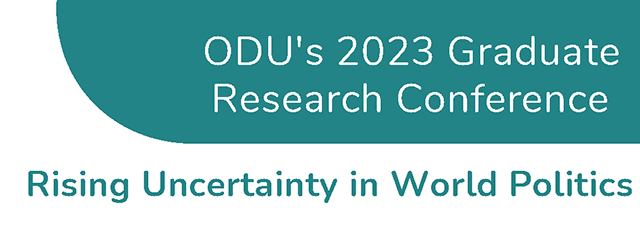University
Emilio Aguinaldo College
Country
Philippines
Document Type
Conference Paper
ORCiD
https://orcid.org/0000-0003-0077-3567
Description/Abstract
Agreements between and among countries have been going on for centuries for the purpose of trade, security, employment, and peace among others, however, changes on these agreements do happen, for instance, when a new President gets elected and see a different direction for his/her country. When President Rodrigo Duterte became President of the Philippines in 2016, he have made it clear that he doesn't trust the United States of America, while expressing preference in working with China, in fact, in his 6 year term, he has never step foot on the country for an official visit, however, a new perspective was introduced when Ferdinand Marcos Jr. was elected as President in 2022. President Marcos Jr.'s vision is clear to involve a strong relationship with the United States of America, as well as with China and other countries, whereas, in his interviews, he has kept on reiterating that one of his visions for the Philippines is to be "A friend to all, and an enemy to none". Clearly, these are two Presidents with different perspectives on international relations and being very popular presidents; President Duterte leaving the office with a 69% trust rating, which is one of the highest in the history of the country, and President Marcos Jr. being the country's first majority president winning with 58.77% of votes since the enactment of the 1987 constitution, it is not a surprise if their perspectives have influenced how the people perceive these countries. Through a literature review, this study attempted to find out Filipinos' perception towards the two superpowers as allies of the Philippines in terms of trustworthiness. It is also the intention of this study to learn about the reasons why Filipinos perceive the countries in such a way, resulting in conclusions to what factors influence their trust.
Disciplines
Asian Studies | International Relations | Public Administration
DOI
10.25776/dy7t-re52
Session Title
From Hampton Roads to Abroad
Location
Virtual (Webb Center, Isle of Wight Room)
Start Date
2-10-2023 2:30 PM
End Date
2-10-2023 3:30 PM
Upload File
wf_yes
The Philippines and the World: Which Country Do Filipinos Trust More and Why
Virtual (Webb Center, Isle of Wight Room)
Agreements between and among countries have been going on for centuries for the purpose of trade, security, employment, and peace among others, however, changes on these agreements do happen, for instance, when a new President gets elected and see a different direction for his/her country. When President Rodrigo Duterte became President of the Philippines in 2016, he have made it clear that he doesn't trust the United States of America, while expressing preference in working with China, in fact, in his 6 year term, he has never step foot on the country for an official visit, however, a new perspective was introduced when Ferdinand Marcos Jr. was elected as President in 2022. President Marcos Jr.'s vision is clear to involve a strong relationship with the United States of America, as well as with China and other countries, whereas, in his interviews, he has kept on reiterating that one of his visions for the Philippines is to be "A friend to all, and an enemy to none". Clearly, these are two Presidents with different perspectives on international relations and being very popular presidents; President Duterte leaving the office with a 69% trust rating, which is one of the highest in the history of the country, and President Marcos Jr. being the country's first majority president winning with 58.77% of votes since the enactment of the 1987 constitution, it is not a surprise if their perspectives have influenced how the people perceive these countries. Through a literature review, this study attempted to find out Filipinos' perception towards the two superpowers as allies of the Philippines in terms of trustworthiness. It is also the intention of this study to learn about the reasons why Filipinos perceive the countries in such a way, resulting in conclusions to what factors influence their trust.


